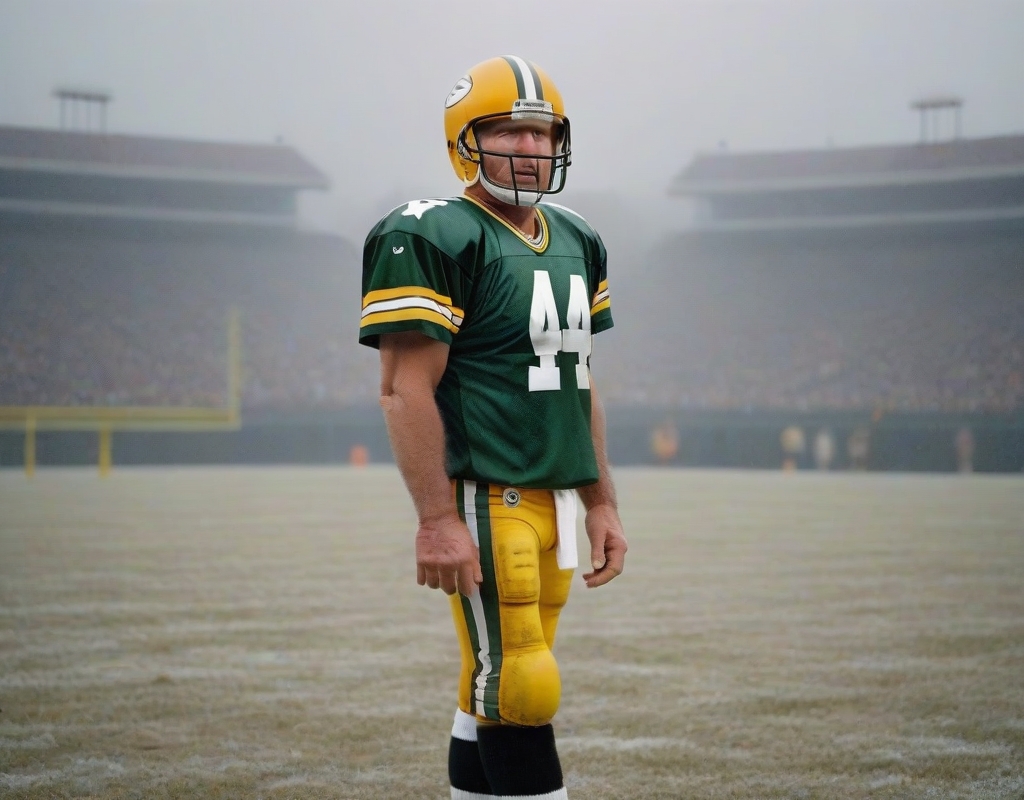In a candid disclosure that caught the attention of many, Brett Favre, the renowned former NFL quarterback with a celebrated 20-season career, revealed he has been diagnosed with Parkinson’s disease. Favre’s diagnosis came after an exhaustive consultation with multiple doctors, underscoring a challenging journey filled with uncertainty and probing medical evaluations. Despite the physical rigor characteristic of his football career and over 1,000 head impacts, which initially steered doctors towards considering trauma-related causes, the final diagnosis pointed to Parkinson’s—a disease with no previous footprint in his family history.
Favre’s path to this diagnosis was paved with subtle yet persistent symptoms that ultimately urged him to seek medical insight. Among the most troubling was an unusual stiffness and immobility in his right arm, complicating everyday activities such as dressing or handling everyday objects, which highlighted the invasive nature of Parkinson’s in daily life. This early symptomatology underscores the critical need for prompt detection and management of neurodegenerative diseases, which can profoundly impact quality of life even in their initial stages.
The implications of Favre’s diagnosis extend beyond his personal health. His condition has reignited discussions about the long-term consequences of professional sports, particularly the links between repeated concussions and chronic neurological conditions. Favre’s experience has become a potent narrative within the broader discourse on the health risks associated with professional football, emphasizing the need for improved safety measures and support systems for athletes both active and retired.
Now at 55, Favre considers himself fortunate that his condition was recognized early, allowing him to start a treatment regime geared toward managing symptoms effectively. His daily routine includes medications that address the rigidity and stiffness caused by Parkinson’s, with minimal tremoring observed. However, in his typical resilient spirit, Favre is determined to explore beyond pharmaceutical remedies, signaling hope for future treatments that reduce dependency on daily medication.
The support pouring in from the community, including peers and fans, has been heartening. Figures like Aaron Rodgers, who succeeded Favre as quarterback for the Green Bay Packers, have expressed solidarity and optimism for advancements in medical science that could better address these health issues. This collective concern and hope among the athletic community highlight a united front in the quest for better treatment and understanding of such diseases.
Emerging research offers a beacon of hope in this regard. For instance, the investigation into alpha-synuclein in spinal fluid as a possible early marker for Parkinson’s illuminates new paths for diagnosis and intervention. Scientists are tirelessly working not only to devise strategies that mitigate the symptoms but also to uncover potential cures for conditions like Parkinson’s.
Although there is no cure that currently stops or reverses the progression of Parkinson’s, the ongoing strides in medical research inspire hope. Favre’s openness about his condition not only raises awareness but also encourages others to seek medical advice early if they exhibit similar symptoms. His journey is emblematic of strength and optimism, serving as a compelling narrative of resilience.
Reflecting on the broader implications, Favre’s story accentuates the importance of support networks—comprising healthcare professionals, family, peers, and fans—and the role they play in managing chronic diseases. His proactive stance and positive outlook invite a broader dialogue about the future of neurological research and the implications for those affected by such conditions.
Brett Favre’s revelation, marked by both vulnerability and courage, underscores a critical narrative about the intersection of sports, health, and the human spirit. It also beckons athletes, enthusiasts, and the scientific community to rally towards a common goal: advancing our understanding and treatment of Parkinson’s and similar diseases, fostering a hopeful future where better health outcomes can be a reality for all.




